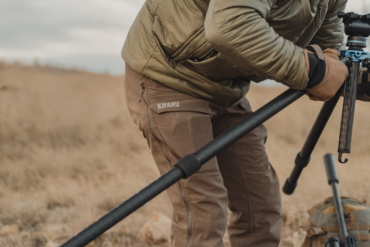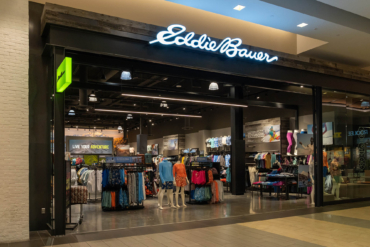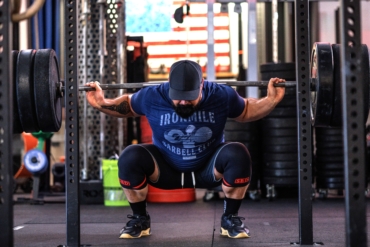Polartec has lab numbers and user testimonials to back up its claims. Polartec has a splay of respected outerwear brands onboard with NeoShell for 2011, including Marmot, Rab, The North Face, Westcomb, 66 North, Mammut, and Eider.
Indeed, NeoShell is going head-to-head against GORE–TEX. More from the press materials: “While traditional shell fabrics require heat and pressure to build inside the garment before the membrane begins to work, Polartec NeoShell breathes actively. . .”. The “traditional shell fabrics”? Yep, GORE–TEX is in that mix.
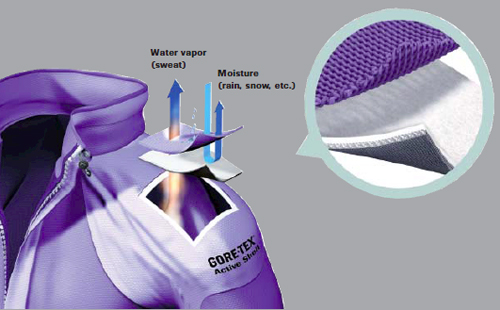
But Gore, the 800-pound gorilla that it is, can not be cited with standing still. The company this fall unveiled its most breathable fabric technology to date, GORE–TEX Active Shell.
Like other GORE–TEX products, the Active Shell membrane is waterproof and windproof, and it is made of ePTFE. But the membrane is half the weight of previous GORE–TEX versions, and the company has removed an adhesive layer in the Active Shell application that it says substantially increases breathability.
Adidas, Arc’teryx, Mammut, The North Face, and other big names are onboard with Active Shell. To differentiate it from other GORE–TEX versions, Active Shell jackets have design criteria made by Gore to keep the garments set with features made for active pursuits, including articulation for sports like running, vents on jackets, non-waterproof zippers, and hood-less designs. Another Active Shell product coming to market, which struck me as odd: Short-sleeved jackets!
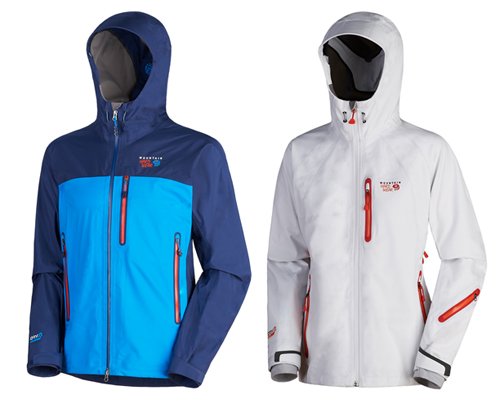
Not to be outdone, Mountain Hardwear made a major announcement this week in the hardshell arena. The company’s Dry.Q technology is touted to “keep you dry on the inside and from the outside,” and it relies on an air-permeability principle like Polartec NeoShell.
Mountain Hardwear reportedly partnered with the General Electric Company subsidiary that makes eVent. Mountain Hardwear cites the membrane plus a “unique combination of supreme quality face fabrics, barriers, backers, glues, tapes and lamination technology” to build its Dry.Q shell line.
Columbia Sportswear Company has jumped on the permeability boat as well with its Omni-Dry product line. To be sure, the company released its first permeability technology in 2008, Omni-Tech, which is a polyurethane membrane. Omni-Dry is an upgrade. It is a hardshell membrane that’s waterproof, breathable, and touted as “the lightest membrane in the industry.”

Omni-Dry jackets were announced last summer, and three styles will be to market this spring. The secret ingredient is a polyetheleyne membrane, which, like the Polartec and Mountain Hardwear products, lets air move in and out — though with no perceptible wind chill from the flow, Columbia states.
Columbia notes Omni-Dry as “surpassing or equaling” industry leaders in moisture vapor transfer and waterproof ratings. For competing hardshells without air permeability, Columbia literature describes a “sponge-like moisture wicking characteristic” that helps excess moisture escape only if significant moisture is created inside the jacket first.
For the first time in years, Gore has some significant challengers for 2011. Read between the lines and Polartec, Mountain Hardwear, and Columbia are all referencing GORE–TEX and noting differentiators or perceived superiorities. All the companies have committed big budgets in the lab and on the marketing front — including Gore. It should be a fun year from the sidelines as well as in the field. If nothing else, 2011 is shaping up to be an appropriate year to get suited up in new outerwear and head outdoors to test. Innovation in this category has long been overdue.
—Stephen Regenold writes about outdoors gear at www.gearjunkie.com.
